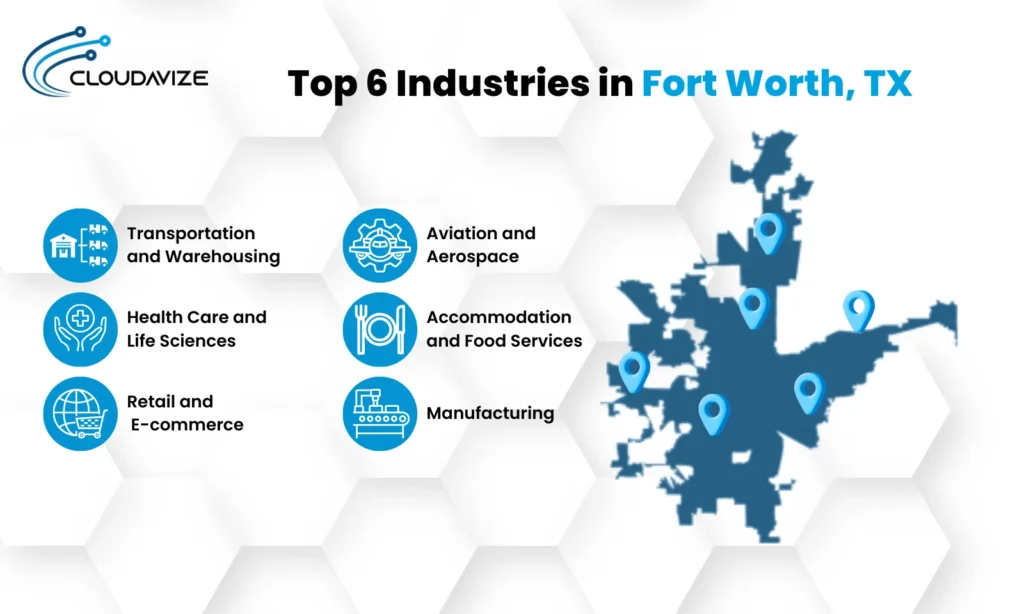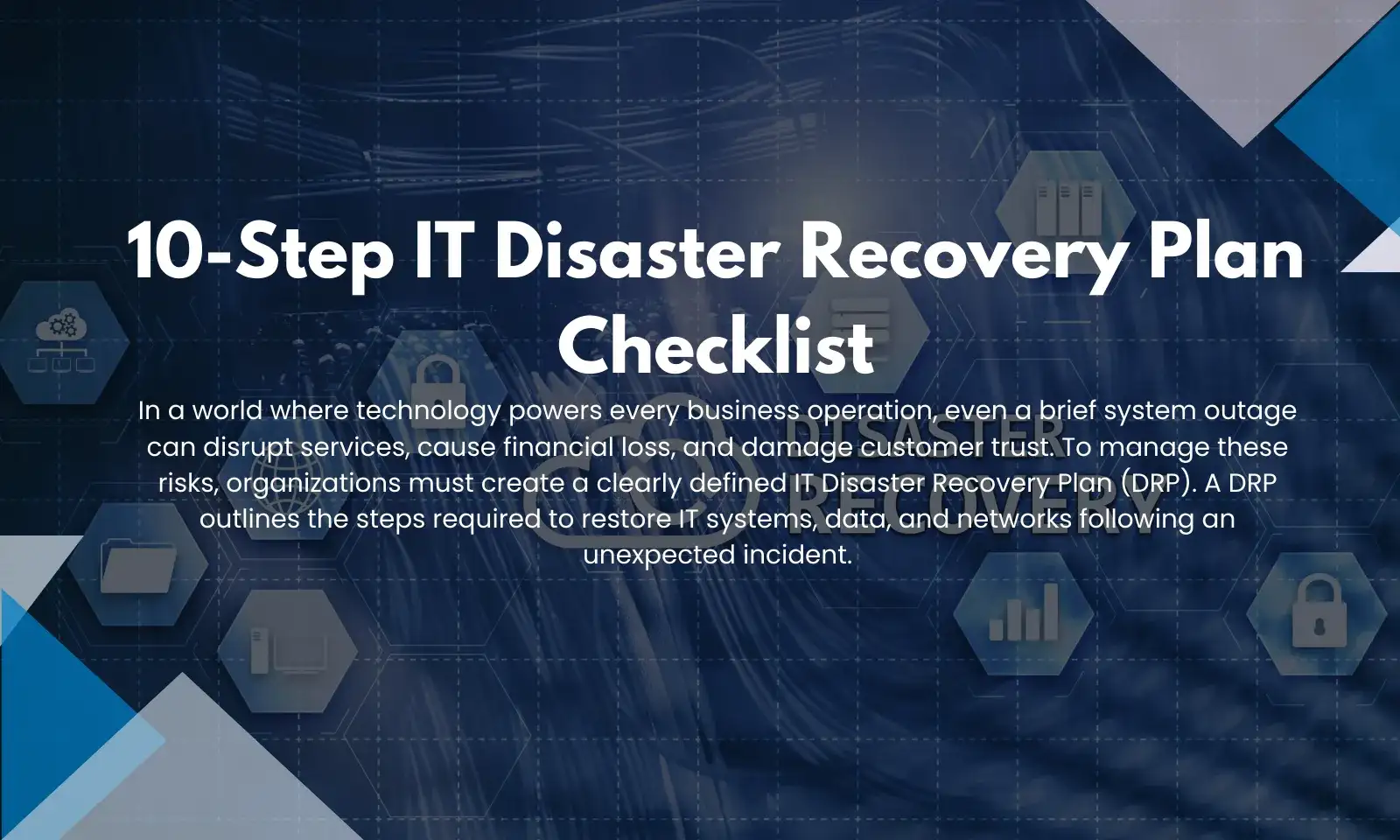Fort Worth, Texas, stands as a dynamic and diverse economic powerhouse, with key industries driving its growth and positioning the city as a regional leader. From aerospace and manufacturing to healthcare and e-commerce, Fort Worth boasts a variety of thriving sectors that contribute significantly to the city’s economic strength and job creation. In particular, industries like transportation, retail, and accommodation services are expanding rapidly, making the city an attractive place for businesses and professionals alike. As Fort Worth continues to grow, these sectors benefit from a skilled workforce, a business-friendly environment, and substantial investments that are supporting both job growth and technological innovation. These top industries are key to the city’s prosperity and future, ensuring Fort Worth remains at the forefront of economic development in the Dallas-Fort Worth metroplex.
- Transportation and Warehousing
- Health Care and Life Sciences
- Retail and E-commerce
- Manufacturing
- Accommodation and Food Services
- Aviation and Aerospace

Table of Contents
1. Aviation and Aerospace
Fort Worth has solidified its position as a central hub for the aerospace and aviation industries, playing a significant role in the city’s economic landscape. Aerospace sector is a cornerstone of the region’s economy, with over 600 aerospace and defense-related companies employing more than 23,500 individuals. Industry giants like Lockheed Martin and Bell Helicopter contribute significantly to the local economy, driving job creation and economic growth. In 2024, Fort Worth was honored with the Impact Award for Advanced Manufacturing, recognizing the substantial contributions of aerospace companies to the region’s economic prosperity.
The Fort Worth-Arlington-Grapevine Metropolitan Division has seen consistent employment growth, with projections estimating the workforce will grow from 1.5 million in 2021 to over 2.1 million by 2045. The aerospace and defense sector remains a major employer, with Lockheed Martin alone providing around 22,950 jobs in the region. Future investments further strengthen the sector, including Embraer’s $57 million investment in a maintenance, repair, and overhaul (MRO) facility at Perot Field Fort Worth Alliance Airport, creating 250 jobs by 2029. Similarly, GE on Wing Support Inc. plans a $50 million expansion near Dallas/Fort Worth International Airport, which will add 100 new jobs by 2026. These developments showcase Fort Worth’s commitment to strengthening its aerospace industry, fostering economic growth, and providing job opportunities for the community.
2. Transportation and Warehousing
Fort Worth’s transportation and warehousing sector continues to drive regional economic growth, with the DFW metroplex adding 110 million square feet of distribution and warehouse space between 2019 and 2023, totaling over 613 million square feet. Key players like, BNSF Railway, and Buske Logistics are leading the charge in the city’s thriving logistics ecosystem.
BNSF Railway operates one of North America’s largest freight railroad networks, specializing in transporting consumer goods, industrial materials, and agricultural commodities. In 2023, the company saw $23.8 billion in operating revenue, with approximately 37,000 employees. With an investment plan of $3.8 billion for capital improvements, BNSF is committed to upgrading its infrastructure for future growth. Buske Logistics, founded in 1923 and headquartered in Illinois, is a prominent player in Fort Worth’s third-party logistics (3PL) market. The company provides services like warehousing, transportation, and supply chain management. In 2023, Buske Logistics reported $55.2 million in revenue, expanding its employee base by 25.95%. With a workforce of 200 employees, the company’s growth highlights Fort Worth’s importance as a logistics hub.
3. Health care and Life Sciences
The healthcare and life sciences sector in Fort Worth has seen remarkable growth, with major companies like Alcon, Sanara MedTech, and Texas Health Resources driving innovation and job creation. Since 2019, the DFW region has expanded its life sciences workforce by 17%, adding approximately 26,000 workers, surpassing the national average of 13.7%. This growth reflects the area’s ability to attract top industry players and foster homegrown successes in fields like pharmaceuticals, medical devices, and optical care.
Alcon Inc. is a global leader in eye care, specializing in the development and marketing of surgical equipment, vision care products, and pharmaceutical eye drops. In Q3 2024, Alcon generated $2.4 billion in sales, a 6% increase year-over-year. With 25,315 full-time employees as of 2023, Alcon continues to expand its market presence. In December 2024, the company initiated a voluntary recall of a batch of Systane Lubricant Eye Drops Ultra PF due to a fungal contamination, though no adverse events were reported. Sanara MedTech, based in Fort Worth, specializes in advanced wound care and skin care products. In 2023, Sanara reported $65.0 million in net revenues, a 42% increase from the previous year, with 108 employees and an average salary range of $84,554 to $187,610. Texas Health Resources, serving 16 counties in North Texas, employs over 28,000 people and reported $5.67 billion in operating revenue in 2022.
4. Retail and E-commerce
Fort Worth is a significant player in the retail and e-commerce industry, with the average annual salary for e-commerce professionals in the region reaching $106,602. The total estimated pay for e-commerce roles in the Dallas-Fort Worth area averages around $137,221 per year, with a base salary of $85,210. These figures highlight the strong demand for skilled professionals in the sector, which is contributing to economic growth and the city’s position as a key retail hub.
La Gran Plaza de Fort Worth is a vibrant shopping center featuring 300+ retail stores, dining options, and entertainment venues. The plaza has experienced significant growth, with sales tripling from $34 million in 2004 to $117 million in 2022. It is now one of the most visited shopping centers in Fort Worth, attracting nearly twice as many annual visitors as The Shops at Clearfork. WinterGreen Synthetic Grass LLC, a locally based business, specializes in synthetic grass installations for both residential and commercial purposes. With $1.6 million in 2018 revenue, WinterGreen has grown rapidly, reflecting the region’s evolving retail market. The company, accredited by the Better Business Bureau (BBB), is expanding with plans to add a fourth crew this spring.
FirstCash Holdings, Inc., a leader in retail pawn stores and point-of-sale payment solutions, reported $3.39 billion in revenue for 2023. The company operates nearly 3,000 stores and employs 19,000 people, marking a 5.56% increase in workforce size. In 2024, FirstCash continues its expansion strategy with the acquisition of 22 U.S. pawn stores and the opening of 19 new stores in Latin America.
5. Manufacturing
Fort Worth has firmly established itself as a key manufacturing hub across multiple industries. Between 2012 and 2022, the city added 51 million square feet of warehousing and manufacturing space, demonstrating its commitment to industrial growth. As the city expands its footprint, manufacturing companies in sectors like aerospace, defense, and food distribution are driving the region’s economic growth.
Lockheed Martin Aeronautics, a division of Lockheed Martin, is a leader in the design and manufacture of advanced military aircraft like the F-35 Lightning II and F-22 Raptor. In 2024, Lockheed Martin reported $71.0 billion in net sales, a 5% increase from the previous year, with over 30,000 employees globally. Despite a significant drop in earnings in 2024, Lockheed Martin remains one of the largest employers in North Texas. Elbit Systems of America, headquartered in Fort Worth, is a defense electronics company specializing in advanced technologies like night vision systems, precision targeting, and unmanned systems. In Q3 2024, Elbit’s parent company reported $1.7 billion in revenues and a $22.1 billion order backlog. Elbit has 3,600 employees and is set to supply Enhanced Night Vision Goggles to the U.S. Army in a $139 million contract.
Ben E. Keith Foods, a major distributor of food service products and premium beverages, reported $5.5 billion in revenue for 2023. With over 6,000 employees, the company has expanded its reach, opening a new distribution center in Alabama in January 2025. These leading manufacturing companies continue to drive economic growth in Fort Worth
6. Accommodation and Food Services
Dallas-Fort Worth area generated $29.9 billion in restaurant sales, contributing significantly to Texas’s overall $106.8 billion in food service sales. The accommodation and food services sector also experienced positive growth, adding 21,300 jobs in the leisure and hospitality industry, with 19,700 of those in accommodation and food services. This growth reflects Fort Worth’s thriving tourism and hospitality industries, with major players driving the city’s position as a leading hospitality hub.
Shake Shack, a modern burger chain founded in 2001, has expanded to over 510 locations worldwide. In 2023, the company reported $286.2 million in revenue, a 20% increase from 2022. The company employs 12,196 people globally and has plans to further expand, including a partnership with Delta Air Lines to serve its signature cheeseburgers to First Class passengers on select flights. Hilton Fort Worth, a historic hotel located near the Fort Worth Convention Center, continues to attract visitors with its prime location and elegant accommodations. The hotel’s upcoming $217 million expansion will add 400 new rooms, further enhancing Fort Worth’s capacity to host large events and conferences. Chumley House, a European-inspired steakhouse in the city’s Cultural District, offers a refined dining experience with a blend of British culinary traditions and global influences. Though specific revenue figures for Chumley House are unavailable, its parent company, Duro Hospitality, has expanded its restaurant portfolio, showcasing the ongoing demand for high-quality dining in the region.
Why Fort Worth’ Leading Industries Choose Managed IT Services for Success
Managed IT Services are the backbone of Fort Worth’s leading industries, providing the essential tools, expertise, and support needed to achieve operational excellence, robust cybersecurity, and a future-ready IT infrastructure. These services ensure seamless operations, protect sensitive data, and offer the scalability needed to thrive in a competitive market. Fort Worth’s aerospace, healthcare, manufacturing, and retail sectors rely on managed IT solutions to streamline their operations, safeguard against data breaches, and maintain business continuity.By choosing the right Managed IT Service Provider (MSP), Fort Worth’s industries can enhance efficiency, stay ahead of technological advancements, and make informed, data-driven decisions. From cloud solutions and network management to system integration and disaster recovery, MSPs offer tailored solutions to meet the unique needs of each sector. Fort Worth’s industries trust managed IT services to drive growth, ensure cybersecurity, and enhance scalability, solidifying their position as leaders in a rapidly evolving business environment. With the expertise and reliability of MSPs, these industries can stay focused on what matters most—delivering value to their customers and ensuring long-term success.



